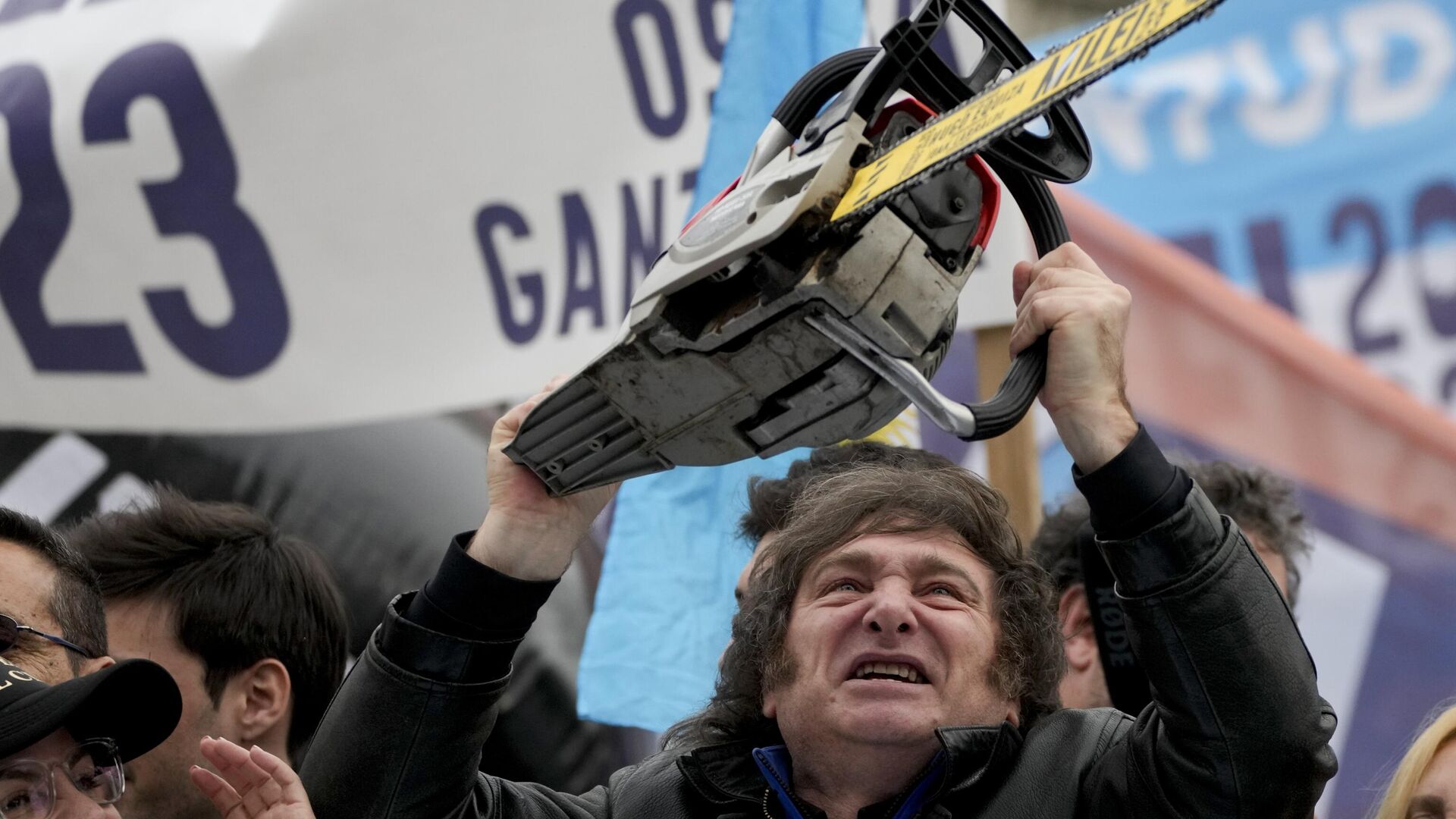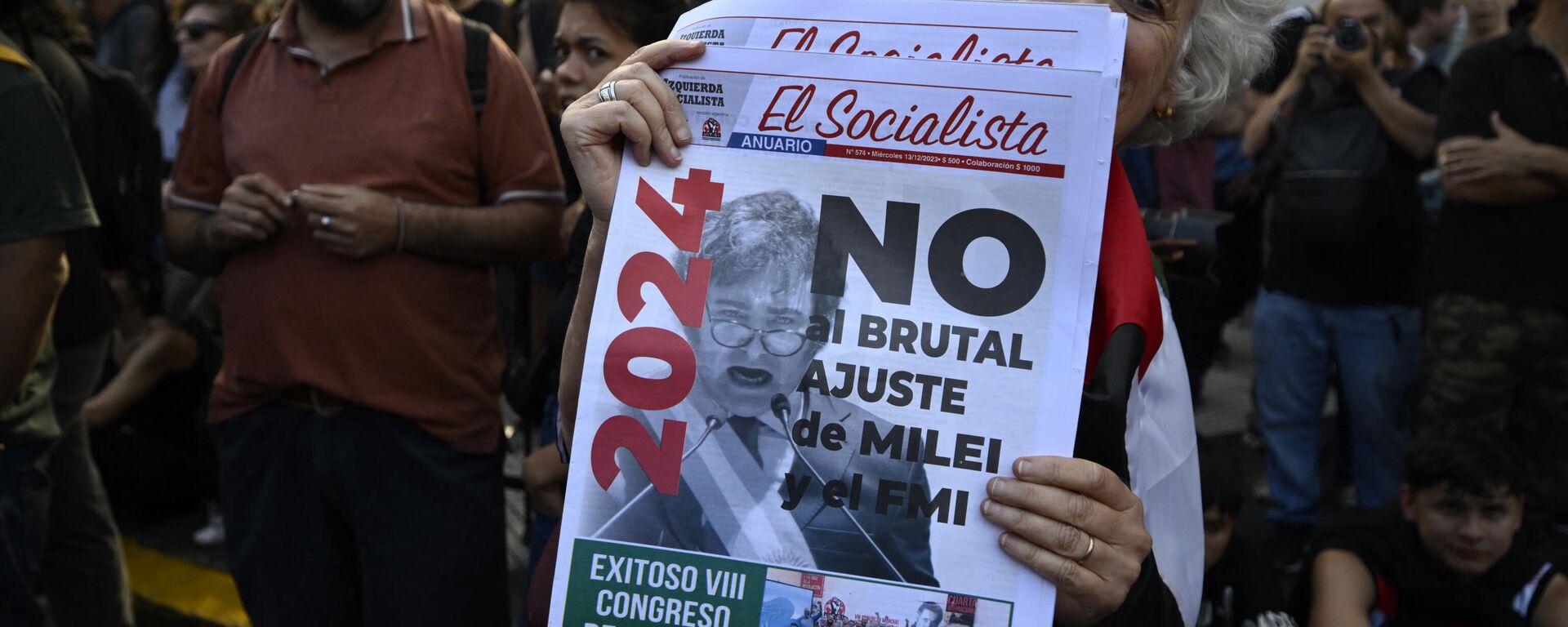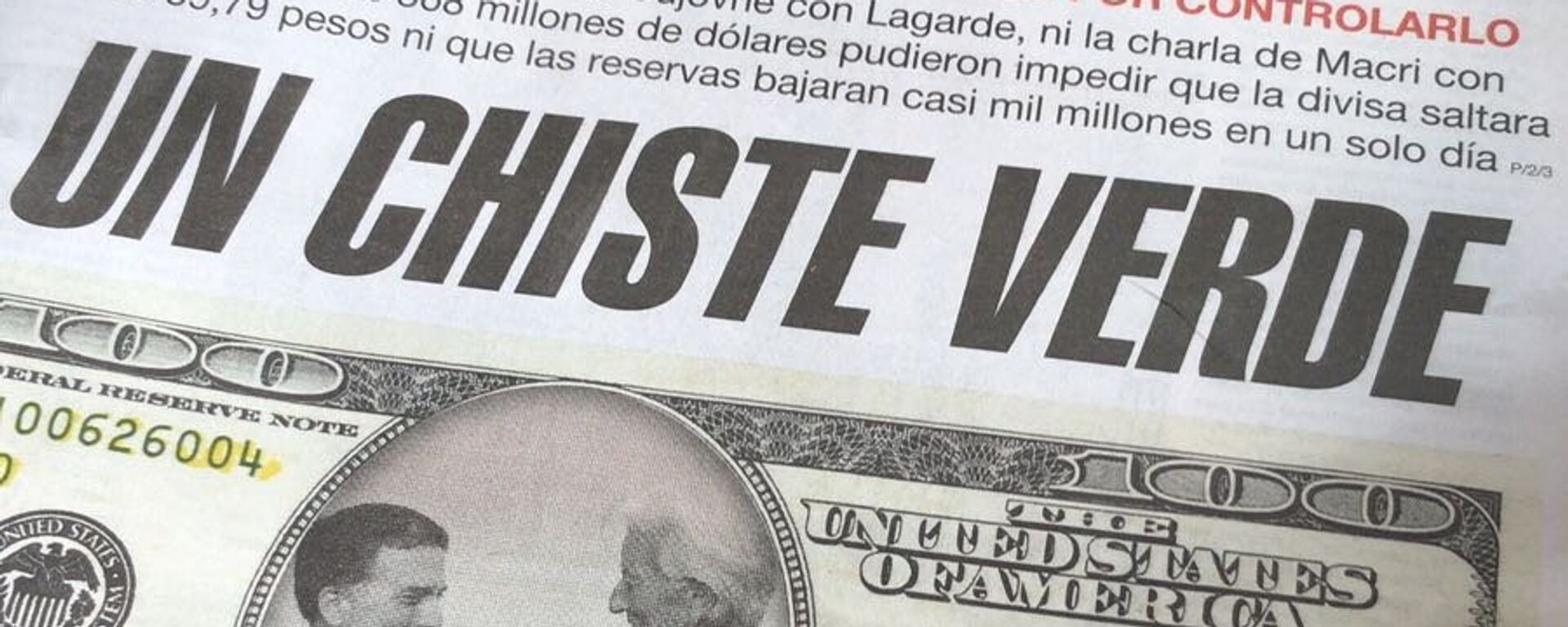Supporters of New Argentine President Likely to Regret His Victory Amid Economic Pain

© AP Photo / Natacha Pisarenko
Subscribe
MOSCOW (Sputnik), Tommy Yang - Amid radical reforms instituted by newly-elected Argentine President Javier Milei, activists and local residents from the South American country shared with Sputnik their impact on ordinary people’s lives and how it could alter the outlook of the libertarian's presidency.
Uncomfortably Familiar
In less than two weeks after taking office as the president of Argentina on December 10, Milei introduced a series of new measures, including devaluing the country’s currency by over 50%, slashing subsidies to energy and transportation and ending limits on exports, as part of his “shock" therapy to fix the nation’s economic woes.
The reforms sent the country’s hyperinflation-hit economy into a free fall as prices skyrocketed and ordinary consumers struggled to buy basic daily necessities.
When Argentinians responded with the signature protest by banging casserole pots to express their anger, Milei vowed to take stern actions against any public disturbances.
For Argentine activists who risked their lives to fight against the military dictatorship in the country in the 1960s and 1970s, the situation under the new president became uncomfortably familiar.
“I risked my life and many of my friends died to avoid this kind of thing. With Milei saying:’ He’s new. He’s doing something different.’ This is not new. When such things happened before, we were under a dictatorship. And the dictatorship collapsed, when they attempted this kind of economic shock. When Adalbert Krieger Vasena, the minister of economy under the dictatorship, tried to do the same in 1968, there was an uprising. The dictatorship had to kill and disappear people like me to counter the resistance. We wonder what’s going to happen now?” Alicia Partnoy, a veteran Argentine activist who was kidnapped and sent to a concentration camp in the 1970s, told Sputnik.
Partnoy became an activist in support of Peronism, a left-leaning political movement based on the ideas of late Argentine leader Juan Peron, when she was still a university student.
“I came from an anti-Peronist family. The division is in every family. From the moment I was born until I entered the university, the country was under dictatorships. When I entered the university, we had a Peronist government and my activism started there. When Juan Peron died, Isabel Peron [his third wife] was in power. In March 1976, a military coup took place. After the coup, I became involved more actively with the Peronist movement,” she said.
As part of the sweeping crackdown from the military dictatorship that took power after the coup, Partnoy experienced unimaginable horrors like many other activists did at the time.
“Less than a year after the coup, in January 1977, I was kidnapped by the army from my home. I was at home with my daughter. My husband was also kidnapped from his place of work. I’m one of the very lucky survivors. I was taken to a concentration camp, where I spent three and half months blindfolded and with my hands tied lying on a mattress. All my friends were taken out and killed,” she said.
Partnoy spent another 52 days in a prison in her hometown of Bahia Blanca in southwest Argentina, before being imprisoned in the capital city of Buenos Aires for an additional two years and a half.
“I came to the United States under [President Jimmy] Carter as a refugee. The Carter administration gave us parole visas to come to the United States. I’m one of the few lucky ones who had her daughter survive, because over 500 children disappeared during that time. My daughter was left at home. I didn’t know what happened to her for five months, because I disappeared for five months. I wrote a book about this and it became a bestseller at some point,” she said.
After moving to the United States, Partnoy settled down in California with her family. She is currently teaching at the Loyola Marymount University. Despite the horrors Partnoy went through, she was relieved to witness the changes in Argentina after the military dictatorship ended.
“I hope what we have been doing in these decades of democracy prevails. One of things we have been doing is justice. When there’s impunity, it’s easier for anyone, especially the military, to just say:’ Let’s go to kill and disappear people.’ But those who were responsible for what happened to me and my friends are in jail now. There’re still trials going on in my hometown against them,” she said.
The activist expressed hope that the threats of future consequences could prevent Milei from carrying out harsh crackdowns against protesters today as the military dictatorship did in the 1970s.
Middle Class Hurt
Instead of hunting down protesters, Milei probably first had to answer to those who voted for him in the presidential election, Partnoy suggested.
“He [Milei] is a total fraud. He lied about the things he said he was doing. He has already alienated the middle class. The pot banging demonstrations are now taking place in the middle-class neighborhoods in many cities. In two weeks, the middle class realized his ‘mermaid chants’ were just a fraud,” she said.
Carlos Jose Caffaratti, a 60-year-old mechanical designer from Santa Fe in northeastern Argentina, had already felt the economic pain from Milei’s new measures.
“There is no one in Argentina who is not affected by the decisions of the Argentine government. Let me ask you a question:’ How can measures that half your income in less than 10 days affect you? What would happen with your life, your mood and your attitude, if you normally eat well for 15 days of the month and eat poorly for another 15 days, and then the food prices go up by 10% in 10 days?’ It affects me and all of us very badly,” Caffaratti told Sputnik.
The price for beef, a key component of Argentinians’ diet, has almost doubled, while rice, bread, vegetables and fruits have also become much more expensive, according to Caffaratti.
“You would surely experience sadness, depression, hatred, anger and helplessness. All those emotions come to you in a rush,” he said.
Argentinians had already been struggling with triple-digit inflation and economic stagnation in recent years under former president Alberto Fernandez, who is a Peronist. That’s part of the reason many young voters in the country went to support a political outsider like Milei, who was viewed as trying to shake up the establishment.
However, from Caffaratti’s point of view, Milei’s economic reforms only made things much worse.
“The proportions are different. The previous government was not good. It did not confront the economic problems. There was significant monthly inflation. But this new government, in 10 days, generated a devaluation of the currency by over 118%, which was automatically transferred to prices,” he said.
Emotion Over Rationality
As a Peronist himself, Caffaratti did not vote for Milei. But he believed many people supported Milei mostly because of his high-profile stunts on social media platforms such as TikTok.
“Emotions prevailed over rationality. The democratic system picked a candidate through emotions. But he has no representation in the provinces or in the streets. But he’s absolutely well-known on TikTok,” he said.
Those who voted for Milei would turn against him sooner or later, Caffaratti believed.
“If you don’t regret now, you’ll regret in the near future: hunger will not make you become forgivable,” he said.
Caffaratti pointed out that ideals based on Peronism had helped build a sufficient social security structure in Argentina, where people can enjoy free education, free public healthcare and a universal pension program.
Partnoy, a Peronist activist, suggested that Argentine politicians who believed in Peronism should find ways to avoid the mistakes made by the administration of Fernandez and win back support from the public.
But for Peronists in Argentina, they just need to wait and see how long Milei’s presidency could last.
“The damage he [Milei] did in the past few days will hurt him back. What Peronists are saying on social media is: 'You voted for him. I’m not going to put my blood in the streets against him when you’re hurt. We’ve put our blood in the streets many times before. You voted for him. Now, you go into the streets and risk your life,’” Partnoy said.



